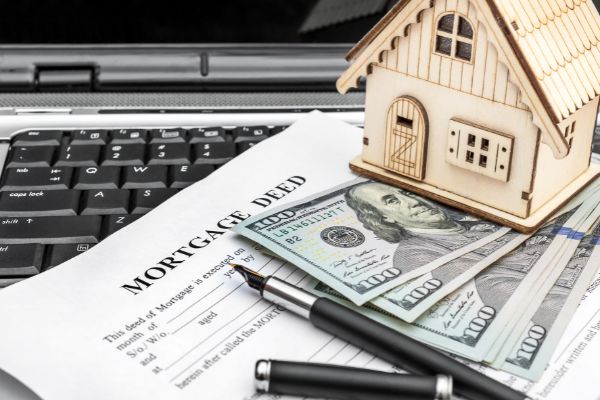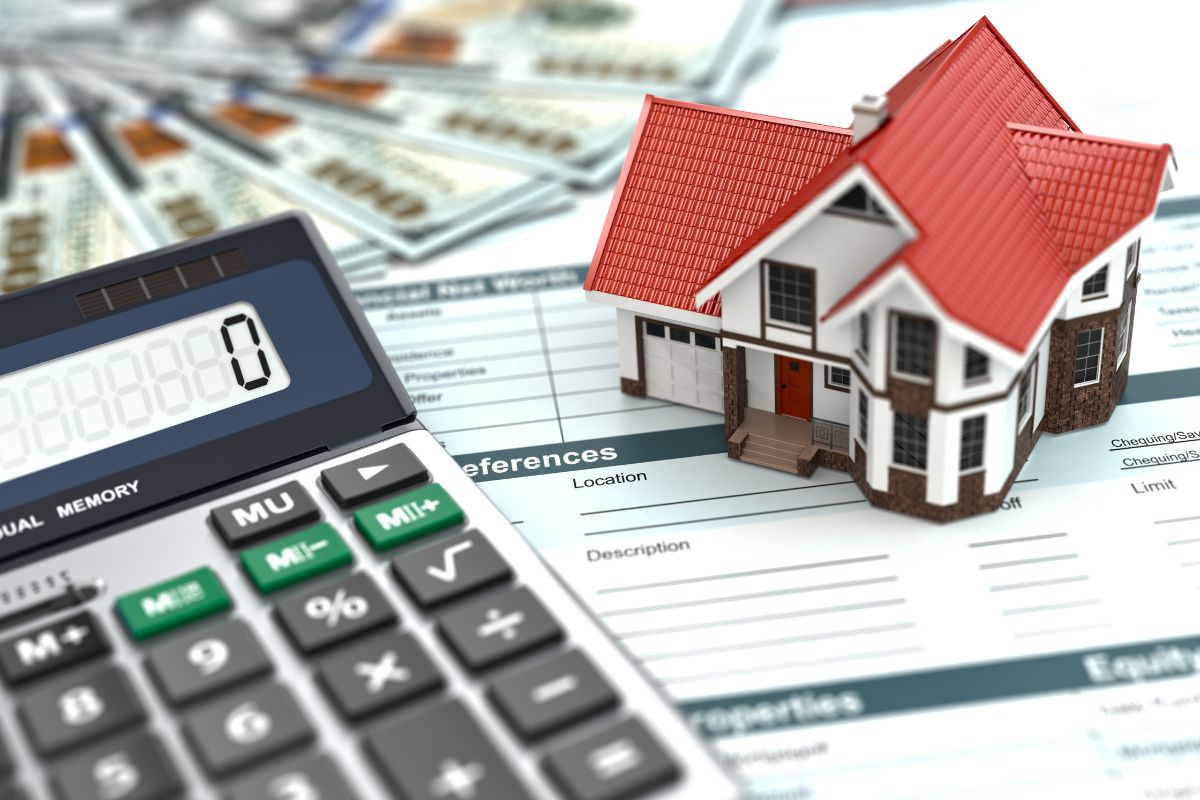Most homeowners sell a house before paying off their mortgages completely. This is perfectly normal and happens every day. The process is simple and straightforward.
When you sell, your mortgage gets paid automatically from the sale proceeds. The money from home buyers goes to your lender first at closing. Any remaining funds become your profit after covering selling costs.
Your mortgage is a lien on your property until it’s paid. This doesn’t prevent you from selling your home. The lender releases their claim once they receive full payment.
Problems only occur if you owe more than your home’s worth. Most sellers have enough equity to cover their mortgage plus expenses. Home values typically rise while loan balances decrease over time.
The closing company handles everything for you. They pay your lender, deduct closing costs, and give you the rest. The entire process usually takes 30-60 days.
Disclaimer: This article provides general information only and is not legal, financial, or real estate advice. Consult qualified professionals before making property decisions. Individual circumstances, mortgage terms, and tax implications vary. We make no guarantees about price accuracy or results. Your situation may differ from examples presented.

Selling Your House Before Paying Off the Mortgage
You can absolutely sell your house with an outstanding mortgage. Most homeowners sell their properties while still making monthly loan payments. The key factor is your home equity amount. Equity equals your home’s market value minus your remaining mortgage balance.
Consider this example to understand the process better: Your home’s current market value is $450,000. You still owe $100,000 on your mortgage loan. This means you have $350,000 in home equity. When you sell at full asking price, you’ll receive this equity. The amount gets reduced by closing costs and selling expenses.
The sale proceeds pay off your mortgage first. As long as your home sells for more than you owe, everything works smoothly. The remaining money after loan payoff becomes your profit. This standard process happens in most real estate transactions today.
Building extra equity helps maximize your selling profits. Making one additional mortgage payment yearly reduces your principal faster. Specify that this thirteenth payment goes toward principal only. This strategy decreases your total interest costs over time. Your equity grows faster when you pay down principal early.
Remember that selling costs reduce your final proceeds. These expenses include agent commissions, transfer taxes, and closing fees. If your equity barely covers the mortgage, these costs matter significantly. Calculate all expenses before home listing to avoid surprises at closing. Some sellers discover their equity isn’t quite enough for everything.
When equity falls short, you’ll need additional funds. This situation requires using savings to cover the difference. The shortage must be paid at closing for the sale to complete. Most sellers avoid this by building sufficient equity before selling. Waiting to sell often makes financial sense in low-equity situations.

How to Sell Your House While You Still Owe Money
Selling a house with an existing mortgage happens every day. You don’t need to wait until your loan is completely paid. The mortgage gets paid from your sale proceeds at closing. Most homeowners successfully sell their properties while still making monthly payments.
Getting Your Mortgage Payoff Amount
Start by contacting your mortgage lender for a payoff statement. This document shows exactly what you owe on your loan. The amount includes your remaining balance plus any accrued interest. Remember that payoff amounts change monthly as you make payments. Request an updated statement once you have a firm closing date.
Your payoff letter contains specific payment instructions from your lender. It lists the total amount due including all fees and charges. Some statements include penalties for late payments or early payoff fees. Review these details carefully to avoid surprises at closing. The statement also provides the exact date for final payment.
Calculating Your Home’s Value and Potential Profit
Next, determine your home’s current market value to estimate potential profits. Look at similar homes that recently sold in your neighborhood. These comparable sales give you realistic pricing expectations for your area. Your real estate agent can provide detailed market analysis and pricing guidance.
Online valuation tools offer quick home value estimates for planning purposes. However, these automated estimates aren’t always accurate for every property. Consider hiring a professional appraiser for the most precise valuation. An appraisal gives you confidence in your asking price. This investment often pays for itself through better pricing decisions.
Remember that selling costs reduce your final take-home amount significantly. These expenses include agent commissions, closing costs, and various fees. A $400,000 sale price with a $150,000 mortgage doesn’t mean $250,000 profit. Calculate all costs before listing to ensure adequate proceeds remain. Your agent should provide detailed estimates of all selling expenses.
Working With an Agent to Price Your Home
Choose an experienced real estate agent who understands your local market. A skilled agent helps you set competitive prices that attract buyers quickly. They analyze current market conditions and recent sales data for you. Good agents also negotiate offers to maximize your net proceeds. Their expertise often results in higher sale prices and smoother transactions.
Your agent prepares a seller’s net sheet for accurate financial planning. This document itemizes all expected costs and shows estimated profits clearly. Request updated net sheets with each offer you receive from buyers. These sheets help you compare offers beyond just the purchase price. Understanding true net proceeds helps you make informed selling decisions.
Completing the Sale and Paying Off Your Loan
After accepting an offer when selling a home, you’ll sign a purchase and sale agreement. This contract starts the official closing process for your home sale. Expect several weeks for inspections, appraisals, and final loan approval. Your agent guides you through each step toward closing day. Most sales close within thirty to sixty days after acceptance.
At closing, the title company handles all financial distributions automatically. They pay your mortgage lender first from the buyer’s funds. Next, they deduct agent commissions and all closing costs. You receive whatever money remains as your profit from the sale. For example, selling for $300,000 with a $150,000 mortgage payoff leaves $150,000. After subtracting $20,000 in closing costs, your profit equals $130,000.
The entire process runs smoothly with proper planning and professional help. Most sellers find the experience less complicated than initially expected. Your mortgage doesn’t prevent you from selling when you’re ready to move.

Selling Your Home When You Owe More Than It’s Worth
Sometimes homeowners face negative equity, also called being underwater on their mortgage. This happens when your home’s value drops below your remaining loan balance. Market downturns can create this challenging situation for many homeowners. You have several options when facing negative equity on your property.
Here’s an example of how negative equity occurs. You purchase a home for $300,000 with a $60,000 down payment. Your mortgage loan starts at $240,000. Later, local property values decline significantly due to market conditions. Your home now appraises for only $215,000. Meanwhile, you still owe $225,000 on your mortgage loan. This $10,000 gap creates your negative equity situation.
Requesting a Short Sale From Your Lender
A short sale allows selling for less than your mortgage balance. Your lender must approve this option before you can proceed. Banks evaluate each short sale request based on your financial hardship. They decide whether accepting less money makes more sense than foreclosure.
During a short sale, your lender controls the selling process. They review and approve or reject every offer you receive. The bank wants to minimize their financial loss on the loan. This process often takes longer than traditional home sales. Patience becomes essential when pursuing this option.
Short sales seriously damage your credit score for seven years. The credit impact equals that of a foreclosure on your record. Future mortgage applications become much more difficult with this history. Consider this long-term consequence before choosing a short sale. Sometimes other options make more financial sense despite temporary hardship.
Paying the Difference From Your Savings
Another option involves covering the shortage with your own money. Using the earlier example, you’d pay $10,000 from savings at closing. This amount bridges the gap between sale price and mortgage balance. Your credit score remains intact when you choose this route. Future borrowing becomes easier without negative marks on your credit.
Depleting savings isn’t ideal but protects your financial future. Good credit helps you rent apartments or buy another home later. The short-term sacrifice often proves worthwhile for long-term financial health. Calculate whether you can afford this option without endangering your emergency fund. Some homeowners borrow from retirement accounts or sell investments for funds.
Waiting for Better Market Conditions
Postponing your sale might be the smartest financial decision available. Property values often recover given enough time in most markets. Renting out your home can cover mortgage payments while waiting. This strategy works if rental income meets or exceeds your monthly costs. Many underwater homeowners successfully use this approach to recover equity.
Consider your reasons for selling before making any decisions. Job relocations or financial hardship require immediate action despite negative equity. However, simply wanting a different home isn’t urgent enough. Evaluate whether your adjustable mortgage rate will increase soon. These factors help determine whether waiting makes sense for your situation.
Market conditions change constantly in real estate over time. Your negative equity today might become positive equity next year. Patience often rewards homeowners who can afford to wait. Monitor local market trends to time your eventual sale better. Professional guidance helps you make the best decision for your circumstances.
What Happens to Your Mortgage When You Sell
Selling your house completely pays off your existing mortgage loan. The sale proceeds go directly to your lender at closing. Once paid, you’re free from that mortgage debt forever. The title company handles this payoff process automatically during the transaction. You don’t need to arrange payment details with your lender personally.
Some mortgages include prepayment penalties for paying off early. Check your loan documents for any early repayment fees. These charges apply when you pay faster than your original schedule. Most newer mortgages don’t have prepayment penalties, but older loans might. Understanding these fees helps you calculate your true selling costs accurately.
Your mortgage likely includes an escrow account for taxes and insurance. This account holds money you’ve prepaid for these expenses. When you sell, the lender refunds any remaining escrow balance. However, this refund doesn’t arrive at your closing table immediately. Expect to receive your escrow refund check within several months. The lender must calculate the exact amount owed to you first.
Understanding Assumable Mortgages
Government-backed loans offer a unique selling advantage called mortgage assumption. FHA, VA, and USDA loans often include this valuable feature. Instead of getting a new loan, buyers can take over your existing mortgage. They keep your current interest rate and loan terms. This option becomes extremely attractive when interest rates rise significantly.
Assumable mortgages only cover your remaining loan balance, not the full purchase price. For example, you owe $200,000 but sell for $300,000. The buyer assumes your $200,000 mortgage but needs another $100,000. They must pay this difference with cash or a second loan. Finding buyers with enough cash can prove challenging in many markets.
The assumption process requires your lender’s approval before proceeding. Buyers must qualify financially just like with new mortgages. The lender reviews their credit, income, and assets carefully. Not every interested buyer will meet the lender’s qualification standards. This requirement protects both you and the lender from defaults.
Rising property values can limit assumable mortgage benefits for buyers. Large down payments might eliminate the interest rate advantage completely. Buyers needing second mortgages face today’s higher rates on that portion. Calculate whether assumption truly saves money compared to new financing. Sometimes conventional sales make more sense despite having assumable loans.
Your mortgage type determines whether assumption is even possible. Conventional loans rarely include assumption rights in their terms. Always verify your loan’s assumption eligibility before marketing this feature. False advertising about mortgage assumptions can derail your entire sale. Work with professionals who understand these specialized transactions for best results.
Conclusion
Selling your home with an existing mortgage is a straightforward process that happens thousands of times daily. Your mortgage gets paid automatically from the sale proceeds at closing. The title company handles all financial details, paying your lender first. You keep any remaining funds after covering closing costs and fees. Building equity before selling maximizes your profits and ensures smooth transactions. Even underwater mortgages have solutions like short sales or waiting for market recovery. Understanding your options and working with experienced professionals makes the process manageable. Whether you’re relocating, upgrading, or downsizing, your mortgage shouldn’t stop you from selling. Take action today by contacting your lender for a payoff statement and consulting a real estate agent.
Disclaimer: This article provides general information only and is not legal, financial, or real estate advice. Consult qualified professionals before making property decisions. Individual circumstances, mortgage terms, and tax implications vary. We make no guarantees about price accuracy or results. Your situation may differ from examples presented.
Frequently Asked Questions
Can a mortgage stop you from selling a home?
A mortgage only prevents selling if you’re underwater on the loan. Being underwater means owing more than your home’s current value. Most homeowners have enough equity to sell without problems. However, negative equity requires special solutions like short sales. Your lender might refuse standard sales below the loan balance.
What happens when you sell your house for a profit?
Selling for profit means receiving money after paying your mortgage and costs. Most primary residences qualify for significant capital gains tax exclusions. Single homeowners can exclude $250,000 in profits from taxes. Married couples filing jointly can exclude up to $500,000. You must have lived there as your primary residence. Only profits exceeding these amounts face capital gains taxes.
How long does it take to sell a house with a mortgage?
The typical home sale takes thirty to sixty days to complete. This timeline starts after accepting a buyer’s offer. During this period, buyers arrange financing and complete inspections. The title company orders your mortgage payoff statement. Appraisals confirm your home’s value meets the purchase price. Cash buyers can sometimes close faster than financed purchases.
Do I need to tell my lender I’m selling?
You don’t need permission but should request a payoff statement early. This statement shows exactly what you owe including interest. Payoff amounts change monthly as you make payments. Your title company handles all lender communication during closing. They manage payment arrangements with your mortgage company.
What if I recently refinanced my mortgage?
Recent refinancing doesn’t prevent you from selling your home. Check your loan documents for any prepayment penalties first. Some mortgages charge fees for early payoff. These penalties typically apply during the first few years. Calculate whether selling still leaves adequate profit after penalties.








